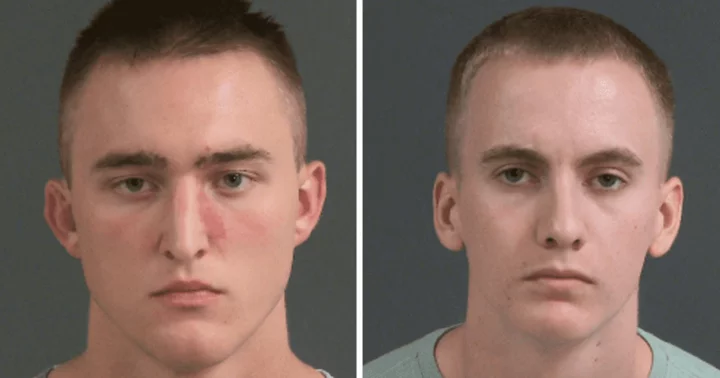
Who are Braden Durst and Sebastian Whitesock? Accused duo smashed a seagull to death because it 'bothered' them
Braden Durst was arrested and charged with ill treatment of animals (torture) and was released on a $10,000 bond
2023-09-26 00:44
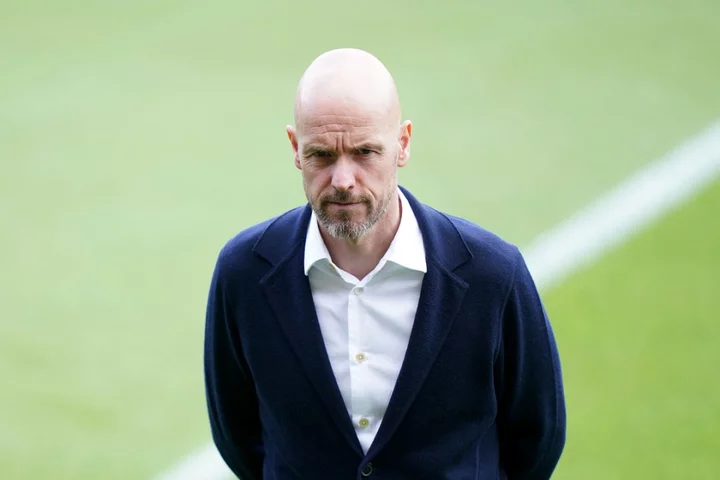
Erik ten Hag talks up Man Utd’s defending as David de Gea wins goalkeeper award
Erik ten Hag praised Manchester United’s collective efforts defensively after David de Gea collected the Golden Glove award for the goalkeeper with the most Premier League clean sheets. United’s 1-0 win at Bournemouth brought De Gea his 17th shut-out of the campaign, taking him clear of Liverpool’s Alisson Becker, as well as helping the team to within a point of Champions League qualification. De Gea has been at fault several times this season, most recently in gifting West Ham a goal in a 1-0 defeat at the London Stadium and as the team crashed out of the Europa League against Sevilla. Yet against Bournemouth he gave a reminder that his shot-stopping ability and reflexes remain undiminished, making three excellent saves from Dominic Solanke, David Brooks and Kieffer Moore to preserve United’s lead. Ten Hag agreed that De Gea has been a key factor in the team’s defensive record, which is the third best in the league, but emphasised it has been a group effort. He also singled out central defenders Victor Lindelof and Raphael Varane in helping United to back-to back clean sheets that have now virtually secured their place in the top four. “A clean sheet is always very important to be successful in a season,” said Ten Hag. “I think it’s telling something about our structure, our plan, and it’s telling also something about dedication from the team. The belief they had in this plan and how they execute it. “Of course we have some individual great players in pressing, in the defending. In the end also a very good goalkeeper who will save you in one-on-ones and shots. “If you’re talking about clean sheets, it’s across the whole team, but centre-halves are very important. “I think they played a really focussed game, really well defended, but I think over many games in April and May it’s Victor together with Rafa is doing great; positioning, duelling. Very good.” United’s win was secured courtesy of Casemiro’s brilliantly improvised goal in the ninth minute, hooking the ball into the roof of the net after Christian Eriksen’s fine cross had deflected off defender Marcos Senesi. A clean sheet is always very important to be successful in a season. I think it’s telling something about our structure, our plan, and it’s telling also something about dedication from the team Erik ten Hag The victory at the Vitality Stadium did not find the visitors at their best but nevertheless Ten Hag said he was impressed with his side’s work with the ball in Bournemouth’s half, particularly in the opening 25 minutes. “We emphasise a lot and we train a lot (that) it’s about the movements when we are in the final third,” he said. “The movements of course have to come first from the front line, second line just behind, but also from the third one with full-backs, with Casemiro coming from there. “The movement is great (for the goal), the touch from Christian Eriksen I think is great, and the finish is brilliant.” Read More Charity boss speaks out over ‘traumatic’ encounter with royal aide Ukraine war’s heaviest fight rages in east - follow live James Tavernier marks 400th Rangers appearance with goal in win over Hibernian The masked striker – Sheffield Wednesday searching for Lee Gregory face shield Authorities investigate El Salvador stadium crush with at least nine people dead
2023-05-21 21:41

Trisha Paytas responds to Colleen Ballinger using her nudes as a joke
Trisha Paytas says she feels “super disrespected” after it was revealed that Colleen Ballinger sent unsolicited nudes of Paytas to her fans. Paytas is the latest person to speak up amidst the ongoing allegations against the YouTuber also known as Miranda Sings. Ballinger has been embroiled in a wave of allegations in the past few weeks after previous fans have spoken up about their inappropriate relationship with Ballinger whilst they were minors. It was claimed that Ballinger made fun of YouTuber Trisha Paytas’ body to her fans and also sent minors nude photos of Paytas. On Monday Paytas uploaded a 21-minute YouTube video titled ‘colleen’ discussing her relationship with the fellow YouTuber. The pair had recently started a podcast together as two mums with young children titled Oversharing. Sign up to our free Indy100 weekly newsletter Paytas starts the video by saying: “These most recent things that are coming out, everyone knows that I have a very very very firm stance on talking to anyone underage, platonic or not, I’ve always been very very firm with this that I think it’s appropriate.” “When all this came out I was shocked, you know the group chats and stuff I was kind of shocked, and it’s such a difficult thing because Colleen is someone that I quickly, literally in the past month that we did this podcast, like I really really cared about and really related to.” Paytas, who has long been a controversial figure and often embroiled in scandals herself shared that prior to Ballinger’s now infamous apology video “we were staying in touch because again I know what it feels like to have the whole internet come down on you. Even if the whole internet is right.” “I don’t want anyone, guilty or not, to ever feel like they don’t have someone to talk to.” Speaking of the allegations made in regards to Ballinger sending Paytas’ nudes to her fans, some who were minors, Paytas said she was “waiting to see what would come out” because of the “serious” and “illegal” aspects of the allegations. “It’s a topic I don’t take lightly and I can’t take lightly,” she adds. colleen youtu.be Paytas is widely known as a sex worker as well as for her YouTube videos. Talking about the sharing of her nudes she said: “I do not condone, at all, sending unsolicited nudes to anyone of anybody, sex worker or not. I think using someone’s nudes as a way to hurt them, make fun of them, make light of them, be mean, is the lowest form of human, the lowest form of intelligence. I think that’s so inhumane, so disgusting for anyone.” Prior to Paytas’ video, Johnny Silvestri, a previous fan of Ballinger who had messaged and met Ballinger on multiple occasions, shared censored photos of Paytas that had been sent to him by Ballinger. “Last night the text messages were shown and it’s very clearly from Colleen to a fan, it has over half a million views on Twitter. I’m not embarrassed by [them], I’m embarrassed for her.” “And these weren’t a long time ago, this is someone well into their 30s who just gave birth sending nudes, and I, a month prior, I was in her house meeting her child, meeting her newborn, and doing a mukbang with her,” says Paytas, clearly hurt. “In these texts there’s also friends of hers, they showed the viewing parties that were talked about, to make fun of me, they did viewing parties of my adult content to make fun of me.” Paytas also revealed that before the text messages were posted online, she had privately asked Colleen if the accusations were true and that Ballinger “assured me that she had never sent photos of me, that this one fan who was underage at the time would send photos to her.” “She said everything is taken out of context, these are lies.” Paytas concludes the video by saying “I just had to make this video to say I don’t stand behind Colleen whatsoever. Her video was not an apology and it took away from the severity of her actions of talking to minors, bringing minors on stage at her show, these peoples are speaking up and they’re uncomfortable for a reason. Acknowledge it, change it, do better.” Have your say in our news democracy. Click the upvote icon at the top of the page to help raise this article through the indy100 rankings.
2023-07-04 17:40
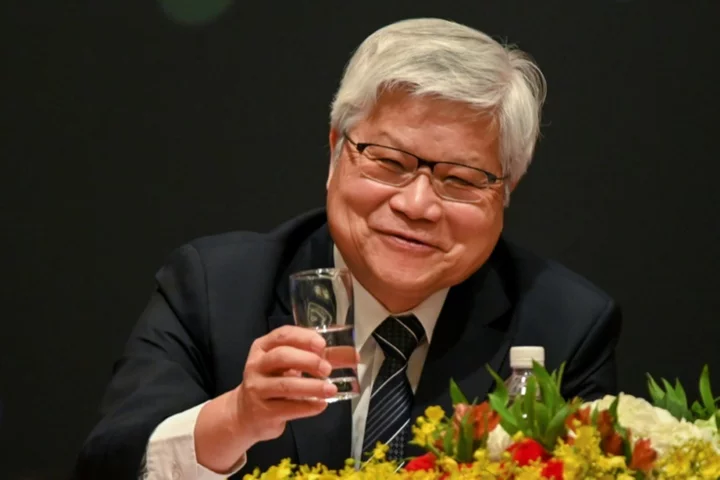
Taiwanese chip giant TSMC says industry could have 'stabilising' effect
Taiwanese semiconductor giant TSMC said Tuesday its production of ever-smaller microchips will remain on the island, hopeful that the critical industry will have a "stabilising...
2023-06-06 15:20

Activision's Ricochet Anti-Cheat Update Gives Look Into Banned Account Numbers
Activision's Ricochet system banned thousands of players over the course of the Modern Warfare 2 beta.
1970-01-01 08:00
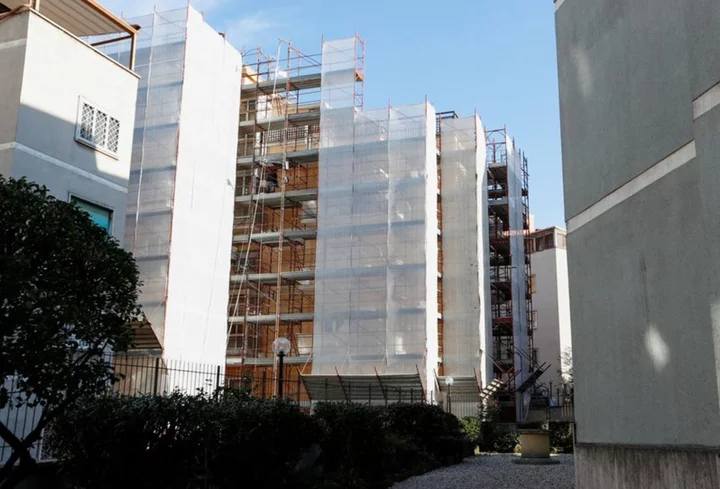
Italy's central bank sees sharp rise in rents amid student housing protests
By Federico Maccioni and Alvise Armellini MILAN/ROME Italy is experiencing a surge in rent prices, the country's central
2023-05-24 00:34

Ron DeSantis mocked as ‘Morning Joe’ hosts Joe Scarborough and Mika Brzezinski discuss his plan to leave drug smugglers 'stone cold dead'
Joe Scarborough and Mika Brzezinski's guest on 'Morning Joe' believed that Ron DeSantis is simply trying to 'talk tough' before the elections
2023-08-22 11:15

Blockchain analysts suspect N. Korea-linked hackers behind $70m crypto theft
By Elizabeth Howcroft and Raphael Satter LONDON Blockchain researchers say North Korea-linked hackers are likely behind a $70
2023-09-16 01:26
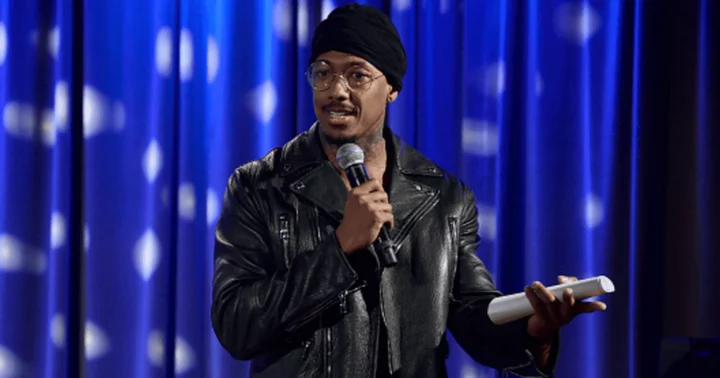
'Money doesn’t make you happy': Nick Cannon admits to not paying child support for his 12 children
'My money is they money, they money is my money...My account is their account, and there’s a lot in there', said Nick Cannon
2023-05-23 03:19

Cherokee Federal Named to Bloomberg Government’s BGOV200 List of Top Federal Contractors
TULSA, Okla.--(BUSINESS WIRE)--Jun 22, 2023--
2023-06-23 00:47

'It's just too much': Jon Lovitz blasts late-night show hosts Jimmy Kimmel, Stephen Colbert for one-sided political takes
Jon Lovitz reminisced about the entertainment-oriented formats of the past as he criticized the politics-laden segments in current late night shows
2023-11-22 19:25
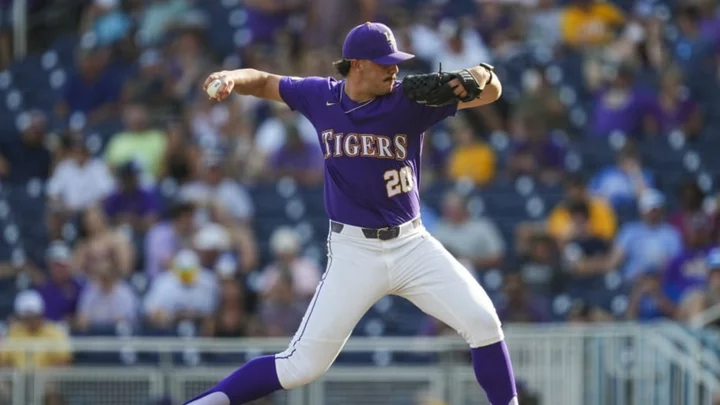
Paul Skenes Signs With Pirates, When Will He Reach the Majors?
The Pirates gave Paul Skenes a record MLB draft bonus. He's not far from the big leagues.
2023-07-19 07:06
You Might Like...

Largest ever Irish drug seizure after ship raided

Ashley Johnson files restraining order against ex Brian Wayne Foster after $150K extortion attempt

China Mulls $137 Billion of New Funds to Aid Housing Market
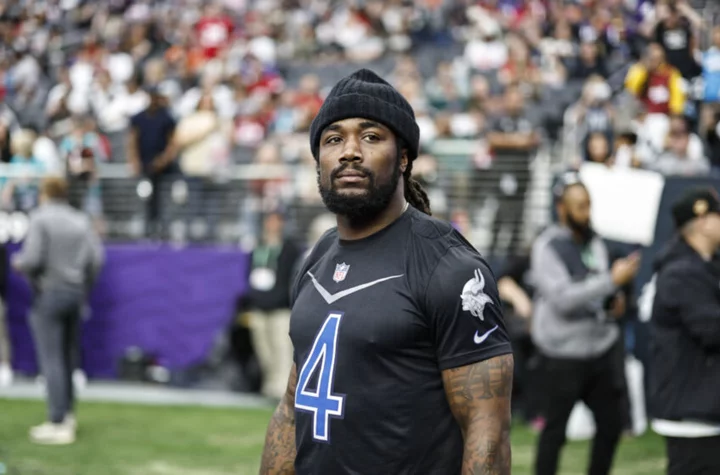
NFL rumors: Vikings welcome the inevitable with Dalvin Cook decision
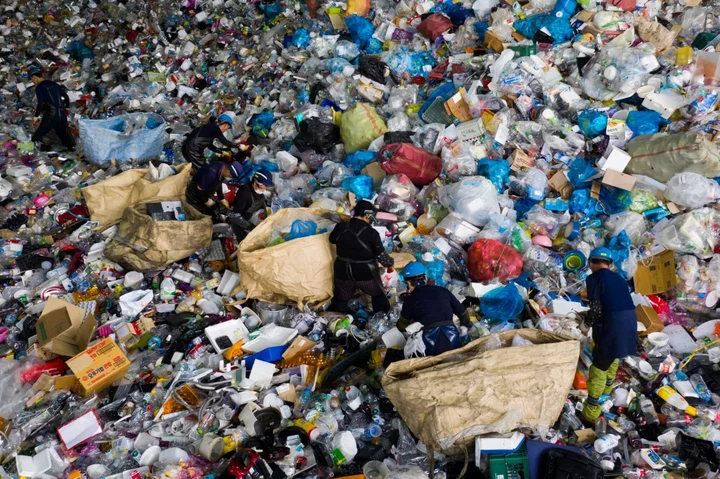
The World Is Choking on Plastic Pollution. Can Countries Find a Fix?

Study Shows That Additive Manufacturing Reduces Emissions and Conserves Resources in Production for Fashion Footwear
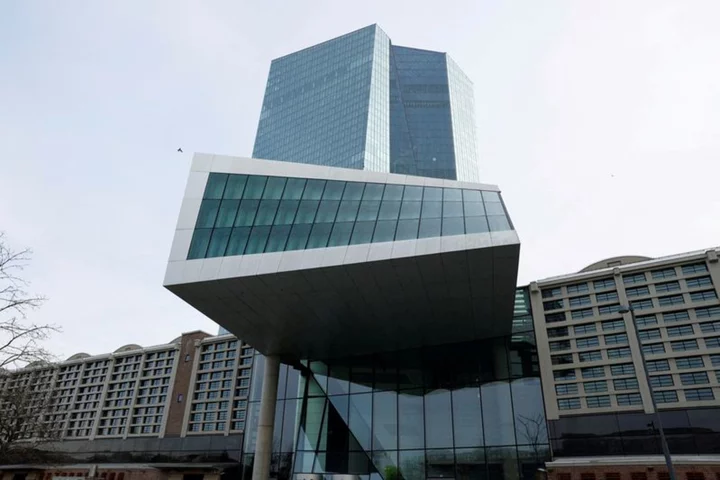
Audit finds holes in ECB's management of bank credit risk
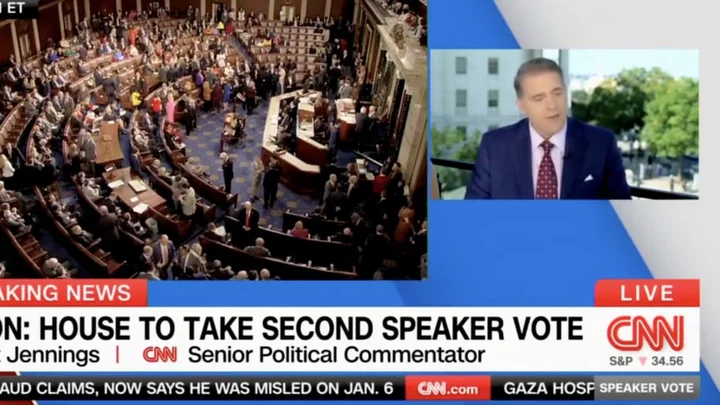
Scott Jennings Calls Speaker Vote 'Biggest Circle Jerk in History of Circles and Jerks' on CNN
